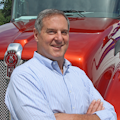As the U.S. advances efforts to increase passenger car mileage and decrease greenhouse gas (GHG) emissions in the coming years, advanced clean diesel vehicles can play a key role in achieving efficiency and environmental gains, provided new government policies don’t hinder current or future technological advances, an industry panel explained during a recent Congressional briefing on Capitol Hill.
The briefing, entitled Driving the Future: Technologies are ready to meet future fuel economy and clean air goals; what about policies?, was hosted by the Diesel Technology Forum (www.dieselforum.org) and the U.S. Coalition for Advanced Diesel Cars (cleandieseldelivers.com).
Also participating in the briefing were representatives from Cummins (www.cummins.com), an independent manufacturer of diesel engines and related products, and Volkswagen (www.vw.com), the largest manufacturer of diesel cars in the U.S.
AN EVOLUTION
Allen Schaeffer, executive director of the Diesel Technology Forum, opened the briefing saying that “clean diesel” has evolved to the point where there is now a 97 percent reduction in the sulfur in diesel fuel, and more than a 98 percent reduction in particulate matter and NOx.
Sulfur, a natural part of the crude oil from which diesel fuel is derived, is one of the key causes of particulates or soot in diesel
Schaeffer noted that the U.S. has a variety of diverse fuel type vehicles to choose from, including turbo-charged gasoline, hybrids, plug-in hybrid-electrics, battery electric vehicles, natural gas and clean diesels.
“Clean diesel is not a ‘bridge’ concept or a ‘down-the-road’ expectation,” he says. “These vehicles are on the road right now providing impressive hybrid-like mileage and meeting the same emissions standards as gasoline vehicles.”
CLEAN AND POWERFUL
Michael J. Ruth, Cummins’ director/technical project leader, advanced light duty, highlighted the fact that the new diesel vehicles available today are “clean, efficient and powerful,” with 20 to 40 percent better fuel efficiency than gasoline vehicles.
He pointed out that many new diesels are:
- Below the required fleet average required NOx values.
- Efficient, providing conventional powertrain options with “outstanding” fuel economy that can exceed Corporate Average Fuel Economy (CAFE) values.
- Powerful, as they can deliver torque equivalent to gasoline engines nearly twice the size at cruise engine speeds and deliver a positive driving experience.
Ruth also shared some information on ATLAS (Advanced Technology Light Automotive Systems). It is a joint program between Cummins and the U.S. Department of Energy to develop a lightweight, fuel-efficient diesel engine for the half-ton pickup truck market that is capable of meeting future U.S. EPA Tier 2 Bin 2 emissions regulations (near zero emissions) and CAFE and other stringent GHG requirements.
EPA MILEAGE ESTIMATES
Douglas Skorupski, manager of powertrain strategy at Volkswagen of America, noted that the “real world driving experience” of diesels includes an analysis of self-reported fuel economy via fueleconomy.gov that demonstrated a majority of diesel users reporting fuel economy above the mileage on EPA window stickers.
He also discussed Volkswagen’s XL1 vehicle, which is touted as “the most fuel-efficient and aerodynamic production car in the world.”
The XL1 – powered by a 4hp TDI clean diesel engine, 27hp electric motor and plug-in hybrid powertrain – gets an estimated European combined fuel consumption rating of 261 mpg (more than 200 mpg estimated in the U.S. cycle) and can cover up to 32 miles as a zero-emissions vehicle in all-electric mode.
TAXING DIESEL FUEL
Jeffrey Breneman, the executive director of the U.S. Coalition for Advanced Diesel Cars, said a major policy that unfairly hurts diesel vehicle drivers is the disparity in the federal fuel tax.
“There is no policy justification for taxing diesel fuel at a disproportionate rate,” he said during the briefing. He added transportation and taxation policies should be “technology neutral” and not unfairly favor some fuel types or unfairly favor others.
About the Author

